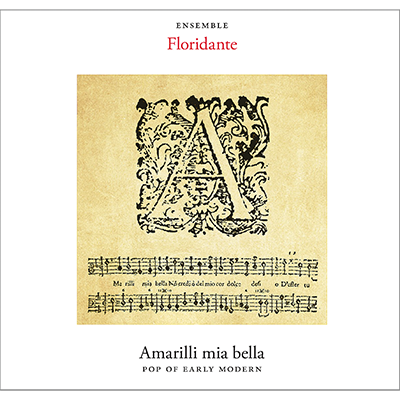By the early 1600s, the world was undergoing significant changes. Copernicus had placed the Sun at the center of the universe, Columbus had discovered America, the Church was going through the Reformation, and philosophers introduced new ideas about humanism and the individual’s role in society. As a result, rhetorics became an important part of school education. This marked the beginning of the Early Modern period in Europe.
At the start of the 1600s, a group of innovative musical practitioners made a public declaration separating the compositional styles of “now” and “then.” This marked the second time in Western cultural history that music was considered “new.” The Franco-Flemish ars nova scholars had stepped down, and the Italians took the lead, with the focus of musical creativity shifting to living, breathing human beings.
Released in December 2019 by Estonian Record Productions and produced by Peeter Vähi, this record is available as a CD and on streaming sites.
Ensemble Floridante
The early music ensemble Floridante was founded in Tallinn in early 2014 and has quickly gained a prominent position in the Estonian early and classical music scene. Estonian culture newspaper Sirp has called Floridante “the sunshine in the Estonian Baroque sky” and “masters of early music” in concert reviews.
Founded by Baroque violinist Meelis Orgse and harpsichordist Saale Fischer, Floridante is a flexible group of six or more instrumentalists, including core members Ele Raik (baroque oboe), Kristo Käo (theorbo/baroque guitar), Mari-Liis Vihermäe (traverso), and Tõnu Jõesaar (baroque cello/viola da gamba). Soprano Maria Valdmaa, the 2nd prize and audience award winner of the 2014 London Händel competition, often performs with the ensemble.
Floridante’s musicians have all graduated from the Estonian Academy of Music and Theatre and have pursued further study in historical performance practice at institutions such as the Sibelius Academy in Helsinki, the University of Trossingen, Bremen, and Freiburg in Germany, the Conservatoire Supérieur de Paris in France, and the Koninklijk Conservatorium in The Hague in the Netherlands. They have also participated in numerous masterclasses.
Though named after Händel’s opera, Floridante’s repertoire goes beyond German high Baroque and includes music from late 16th century Italy to the Galant style of the 18th century. In 2015, Floridante and Maria Valdmaa were selected to celebrate the year of Bach and Händel in prestigious concert halls in Estonia, including the Estonia Concert Hall, Vanemuine Concert Hall, and the Haapsalu Early Music Festival.

